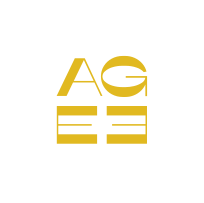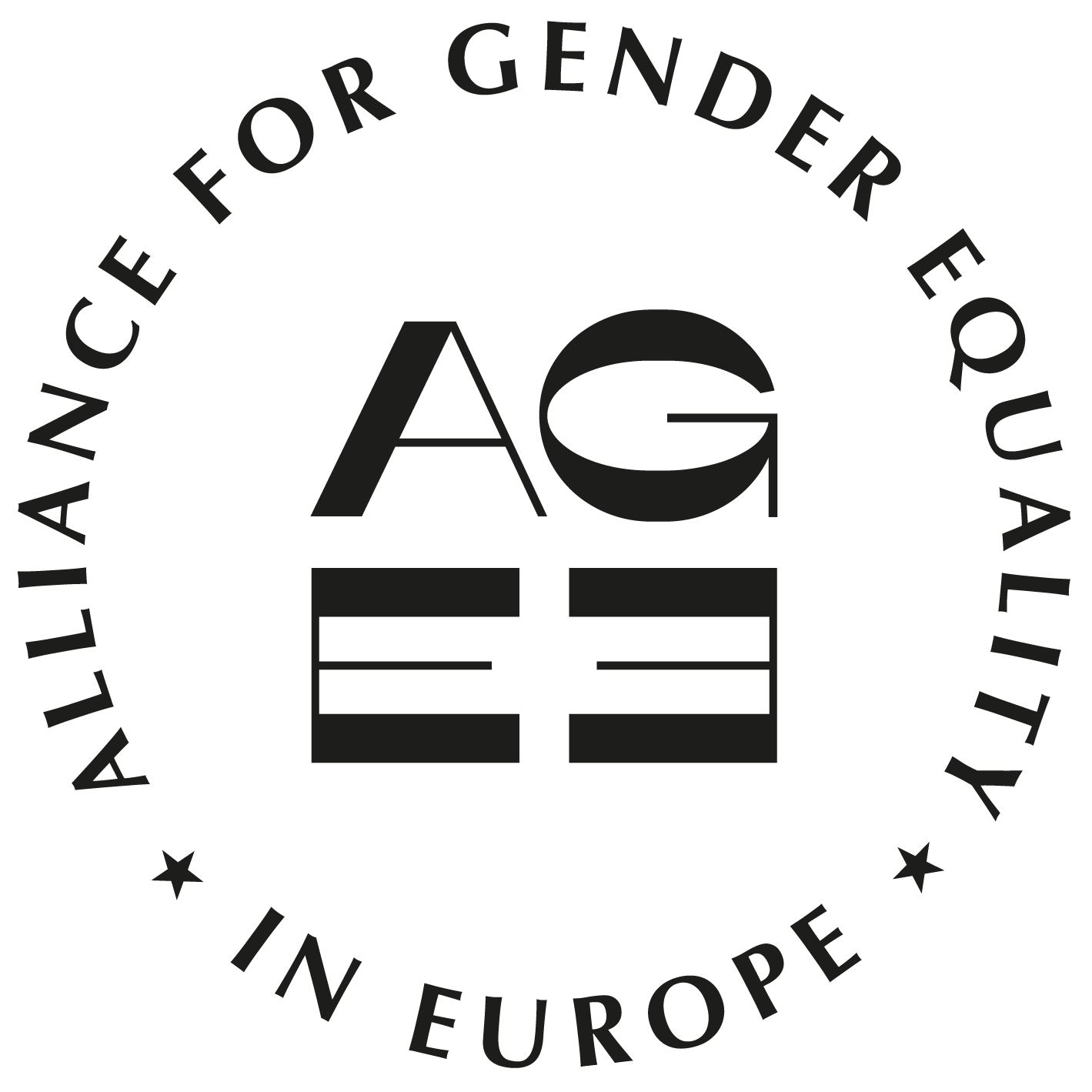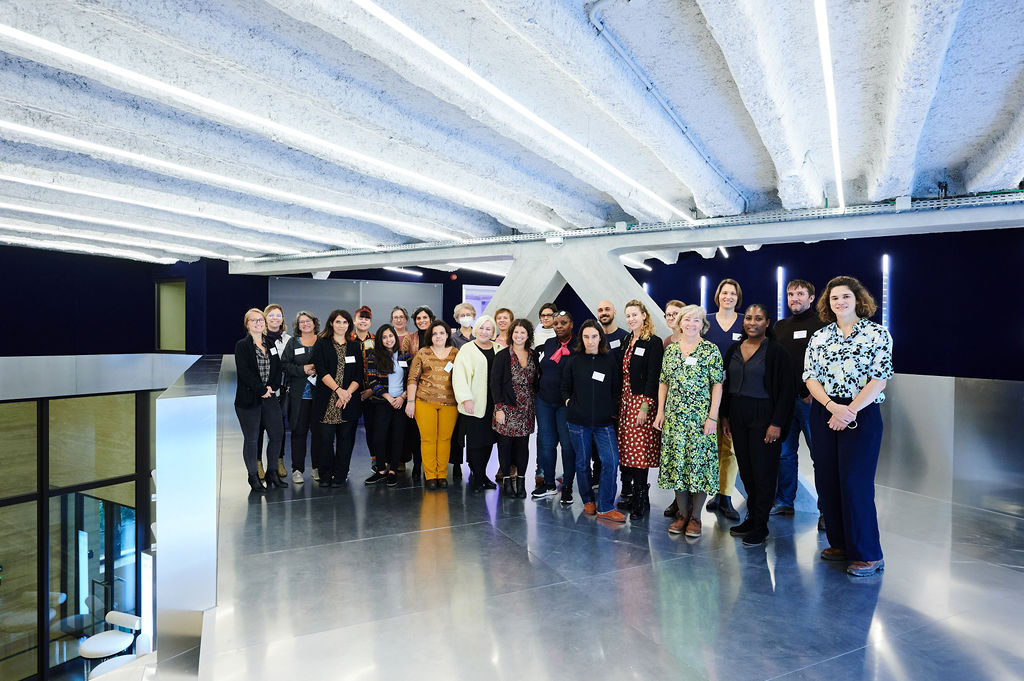By Karen Weisblatt, consultant to the Alliance
Context
Despite improvements in the last decades, gender inequality is still a significant problem in Europe: women on the average earn 16% less than their male counterparts; the gap between pensions for men and women is nearly 40%; only 8% of large European companies are headed by women; and one in three women has experienced physical or sexual violence.[1]
Moreover, Europe is currently experiencing a closing of civic space, as populist and anti-progressive governments increase their visibility, already fragile democratic states have witnessed a significant backlash to key advancements, putting vulnerable people at greater risk.
This is the context in which the Alliance launched their first call for proposals, looking to partner with small, community-driven frontline groups and experienced collaborative organisations distributed geographically across the European Union. The Alliance’s approach focuses on amplifying the voices of those most impacted while at the same time working with organisations whose experience and political connections can better address the larger structural issues that contribute to gender inequality and fighting gender-based violence (GBV).
Combatting gender inequality through targeted, local efforts and regional collaborations
The Alliance’s approach recognises that women and other marginalised groups, such as youth, poor people, migrants, refugees, people with disabilities, LGBTIQ+ people, have multiple layered identities and are thus affected differently by gender inequality. For this reason, it seeks out partners with a deep understanding of the specific needs and interests of targeted populations to address the complex challenges involved. Often, these groups are self-led or deeply embedded in the communities they work with, providing support as a complement to government services or filling gaps where needed. In addition, the Alliance collaborates with organisations who have proven expertise, such as women’s funds, as their extensive networks, and experience funding grassroots organisations makes them powerful drivers of social change at the structural level.
A bottom-up approach to reach those most impacted
In the face of rising violence, both digital and physical, grantees are empowering women through a broad range of activities, such as enhanced online strategies, self-defence classes, and support groups, whose effects are multiplied through various dissemination channels. In addition, they are finding creative ways to raise awareness about the severity of the problem, both within vulnerable populations and with the wider public.
Spain-based LabCoop is a cooperative that provides community hosting, incubation space, and training to social entrepreneurship initiatives. Through the DALIA Fund, it offers access to economic resources and entrepreneurship, helping small groups of entrepreneurs create viable social enterprises. The fund is particularly aimed at groups who take an empowering and participatory approach and work with those that have little access to social services, such as migrant women, domestic workers, the unhoused and LGBTIQ+ youth, amongst others.
Team member Guernica Facundo Vericat explained, “In Spain the social economy is mostly comprised of women who represent 80% of the people we serve. Women-run social enterprises we have supported and helped develop range from a cooperative of lawyers who are working from a feminist perspective to a small collective of gardeners who run a successful co-op in this male-dominated field. We specialise in working with groups, not individuals so that we can see broader and deeper impact.”
Women-run social enterprises we have supported and helped develop range from a cooperative of lawyers who are working from a feminist perspective to a small collective of gardeners who run a successful co-op in this male-dominated field.
Guernica Facundo Vericat, LabCoop
The aim of NANE is to fight violence against women and children in Hungary. The organisation is active at the individual, community, and social level and its activities include running a toll-free helpline and self-help groups for domestic and sexual violence victims and their supporters. In addition, it publishes information on intimate partner violence, emphasising the systematic, societal and structural aspects of the problem. NANE also organises awareness-raising and advocacy campaigns and monitors state and law enforcement policies regarding gender-based violence.
Dorottya Szalay of NANE outlined their approach: “We’ve been working for 28 years in Hungary. From basically the outset we’ve been involved in working with disenfranchised women from the Roma community and promoting minority rights. Roma people make up about 5-7% of the Hungarian population. Our approach has been consistent over the past decades. We focus on knowledge exchange and providing trainings and helping tailor them to specific communities. We want to help communities move towards enhanced sustainability so that they can run projects themselves—we don’t come in, train, and then leave. We educate our activists so that they are empowered to work in their own communities.”
We want to help communities move towards enhanced sustainability so that they can run projects themselves—we don’t come in, train, and then leave. We educate our activists so that they are empowered to work in their own communities.
Dorottya Szalay, NANE
The mission of Sicily-based Per Esempio Onlus is to reinforce social cohesion by empowering individuals and groups at risk of social exclusion, particularly women, migrants, and minorities. Its Women in Action project promotes opportunities for education and vocational training, including communications and information technologies, in disadvantaged neighborhoods such as Borgo Vecchio. “We work with people who have what we call educational poverty—meaning the deprivation (material, social, economic and cultural) by children, adolescents of the opportunity to freely learn, experience, develop and flourish their abilities, talents and aspirations, that generates a very low trust in institutions. Many have not completed schooling. We develop non-formal educational paths and proximity community work to foster inclusion. We take a holistic approach and bridge the gaps between social services and our designated populations. Our activities complement what the state does,” explained Per Esempio Onlus’ Martina Riina.
The organisation is helping women and girls by developing a peer-to-peer approach, building together from the bottom up.
Riina stated, “I think we need to learn from the people we are trying to serve. This area is very “traditional” in defining male and female roles – women are mothers and take care of their children. We are trying to help improve relationships between men and women. The younger generations are challenging these previous assumptions, but first of all we need to engage on poverty issues, then school drop-out, broken families, etc. What does it mean to be a 14-year-old mother, to be poor and marginalised? We aim to understand the context and then help to provide solutions. It is a difficult task, but together we can build new pathways moving forward.”
We develop non-formal educational paths and proximity community work to foster inclusion. We take a holistic approach and bridge the gaps between social services and our designated populations. Our activities complement what the state does.
Martina Riina, Per Esempio Onlus
Engaging with collaborative structures to multiply impact
Czech Women’s Lobby (CWL) is an umbrella organisation coordinating 35 members with a broad mission of advocating for laws in the Czech Republic that ensure a better life for women and other disadvantaged groups. One of their activities involves raising awareness about the services available locally to women struggling with the consequences of the Covid-19 crisis as well as harm from gender stereotypes and anti-gender backlash. They hold many high-profile events and plan to continue discussions with their network about the need to relaunch a working group on anti-gender backlash and the creation of watchdog activities.
“We support our member organisations which work on women’s issues and make sure no woman is left behind,” said CWL’s Hana Stelzerova. “We do advocacy work to promote women’s rights on a national level and we help women’s organisations grow. We are part of the European Women’s Lobby which brings us into contact with other Europeans.” Stelzerova stressed the importance of the European Women’s Lobby as an ally to frontline groups and a way to amplify their concerns. “These grassroots groups working with dedicated populations need to be able to do their work and then we need to be able to support them and help them integrate into larger frameworks” she explained. “It is important for democracy and this bottom-up approach is key. Our mission is to take on real problems women face and take them up to the political level which they might not be able to do on their own.”
These grassroots groups working with dedicated populations need to be able to do their work and then we need to be able to support them and help them integrate into larger frameworks.
LHana Stelzerova, Czech Women’s Lobby
The Ecumenical Women’s Initiative (EWI) is active in the Western Balkans, supporting and empowering women and girls as advocates for women’s human rights and gender equality. The grant from the Alliance allowed them to increase support and accompany grassroots organisations, including capacity building activities such as training in developing scenario budgeting, financial management, digital security and other skills. One of their tool, the Most Significant Change Story technique, gives women who have lived through conflict and hardship the opportunity to find their voice, share their own stories and find connections.
EWI’s Carolyn Boyd Tomasović underscored the importance of the organisation as one of the only women’s funds operating in the region. “Roughly 40% of the women we work with live in remote rural areas,” she said. “Many are not digitally literate, they operate below the radar and are sometimes even the only civil society organisation in their community. If we didn’t exist, as a women’s fund, a number of these groups would simply not be able to access funding. We have the flexibility to reach out to these smaller grassroots groups that because of ethnicity, their limited financial capacity or their political stance have difficulties getting funding. These groups are sometimes the only window of democratic space open for engagement and the work these groups are doing is highly valuable.”
Carolyn Boyd Tomasović, EWI
We have the flexibility to reach out to these smaller grassroots groups that because of ethnicity, their limited financial capacity or their political stance have difficulties getting funding. These groups are sometimes the only window of democratic space open for engagement and the work these groups are doing is highly valuable.
As the Latvian branch of the European Women’s Lobby, the Women’s NGOs Cooperation Network of Latvia coordinates 42 organisations and groups representing women of all ages, social classes, ethnic origins, religions, sexual orientations, and abilities, helping them to overcome hardships and start joint actions. The grant from the Alliance supports its project to strengthen local women’s NGOs and Roma activists to mitigate the effects of the Covid-19 crisis and improve access to economic resources and entrepreneurship. Indeed, the most vulnerable groups in Latvia have been Roma women and women with disabilities as they are often house bound, without access to the internet or smart phones, which puts them at particular risk of violence.
The organisation’s Inete Ielite explained, “Our role is particularly important outside of the big cities. We are the national coordinator of many organisations, and we use this strength to advocate on behalf of frontline groups and represent their interests to the best of our ability. For example, we support the Roma women’s group “Sare Khetene” which means ‘all together’ in Ventspils, a port city in Northwestern Latvia. They joined our network this year and the Alliance grant is enabling us to help empower them and integrate them into our broader network. A smaller group like this cannot easily speak directly with the Ministry of Welfare, but with our participation, we were able to bring about such a meeting. We were also able to meet with the Deputy speaker of Parliament and the Head of the Committee for Human Rights so that this group’s concerns would be included as part of national policy formulation.”
Our role is particularly important outside of the big cities. We are the national coordinator of many organisations, and we use this strength to advocate on behalf of frontline groups and represent their interests to the best of our ability.
Inete Lelite, Women’s NGOs Cooperation Network of Latvia
Rainbow Families Croatia is the Croatian representative of the Network of European LGBTIQ+ families, leading the way in the region. It offers support, information, legal assistance and advocacy for LGBTIQ+ people around issues of family planning. In addition, the organisation provides psychological support for women and minorities and recently launched a survey on stress management and mental health with more than 1 000 participants—the largest on the topic in Croatia. Another widely lauded initiative was the distribution of picture books with rainbow symbols to make the topic of LGBTIQ+ families more accessible.
Rainbow Families Croatia is starting a network of different parental and reproductive rights organisations and developing a strategic plan for advocating for the change of Medically Assisted Procreation laws. “We are unique in that we are the only organisation in Croatia focused on family rights for this community,” said representative Matea Popov. “We engage with our core community while reaching out to a broader audience to create a broad coalition of supporters. People like to work with us because we are seen as being approachable.”
We engage with our core community while reaching out to a broader audience to create a broad coalition of supporters.
Matea Popov, Rainbow Families Croatia
Moving Forward
Principle Two of the UN’s Universal Values, “Leave no one behind”, represents the unequivocal commitment of all UN Member States to “eradicate poverty in all its forms, end discrimination and exclusion, and reduce the inequalities and vulnerabilities that leave people behind and undermine the potential of individuals and of humanity as a whole.”[2] Further, advancing women’s equality and empowerment is an integral part of the UN’s 17 Sustainable Development Goals (SDGs), and Goal Number Five states: “Women and girls, everywhere, must have equal rights and opportunity, and be able to live free of violence and discrimination.”[3]
Ensuring that women and girls in Europe have the same access to opportunities, rights and safety, that none are left behind, requires a joint concerted effort—not a single approach, but several interconnected ones. It is essential to support frontline grassroots organisations who know best what difficulties the populations they work with are facing. These groups are often self-led or deeply involve the participation of those they are helping in order to ensure that resources are going where they are most needed. This grassroots approach is even more effective when complemented by the work of larger coordinating groups whose strong political connections and advocacy expertise can address the more structural aspects of gender inequality. This is where umbrella organisations, networks, collaboratives and women’s funds have another important role to play, both by providing financial and capacity-building support and by lobbying on behalf of their members at the EU level.
By engaging with both types of civil society organisations, the Alliance is ensuring that support for gender equality and women’s rights in Europe is being addressed from both the bottom-up and the top-down, contributing to a groundswell that will ultimately create positive long-lasting change in the lives of women and girls.
[1] See: Gender Equality Strategy Factsheet, European Commission, 2020
[2] See: https://unsdg.un.org/2030-agenda/universal-values/leave-no-one-behind
[3] See: UN Women Website, SDG 5: Achieve gender equality and empower all women and girls


